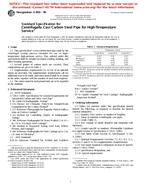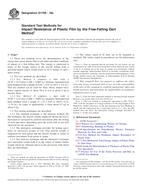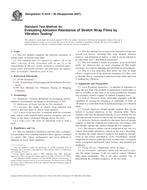1.1 This test method describes two essentially equivalent procedures: one for obtaining a long-term hydrostatic strength category based on stress, referred to herein as the hydrostatic design basis (HDB); and the other for obtaining a long-term hydrostatic strength category based on pressure, referred to herein as the pressure design basis (PDB). The HDB is based on the material's long-term hydrostatic strength (LTHS),and the PDB is based on the product's long-term hydrostatic pressure-strength (LTHSP). The HDB is a material property and is obtained by evaluating stress rupture data derived from testing pipe made from the subject material. The PDB is a product specific property that reflects not only the properties of the material(s) from which the product is made, but also the influence on product strength by product design, geometry, and dimensions and by the specific method of manufacture. The PDB is obtained by evaluating pressure rupture data. The LTHS is determined by analyzing stress versus time-to-rupture (that is, stress-rupture) test data that cover a testing period of not less than 10 000 h and that are derived from sustained pressure testing of pipe made from the subject material. The data are analyzed by linear regression to yield a best-fit log-stress versus log time-to-fail straight-line equation. Using this equation, the material's mean strength at the 100 000-h intercept (LTHS) is determined by extrapolation. The resultant value of the LTHS determines the HDB strength category to which the material is assigned. The LTHS P is similarly determined except that the determination is based on pressure versus time data that are derived from a particular product. The categorized value of the LTHSP is the PDB. An HDB/PDB is one of a series of preferred long-term strength values. This test method is applicable to all known types of thermoplastic pipe materials and thermoplastic piping products. It is also applicable for any practical temperature and medium that yields stress-rupture data that exhibit an essentially straight-line relationship when plotted on log stress (pound-force per square inch) or log pressure (pound-force per square in. gage) versus log time-to-fail (hours) coordinates, and for which this straight-line relationship is expected to continue uninterrupted through at least 100 000 h.
Product Details
- Published:
- 11/15/2013
- Number of Pages:
- 16
- File Size:
- 1 file , 190 KB


